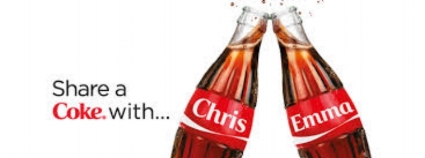These six brands are leading the way when it comes to bringing humanity back into marketing
 In a time when everyone in our industry is chatting about the dawn of AI and machine learning, we want to acknowledge those brands that are working to keep humanity alive in their marketing strategies.Here are a few of our favorite campaigns that truly demonstrate the best of humanity.
In a time when everyone in our industry is chatting about the dawn of AI and machine learning, we want to acknowledge those brands that are working to keep humanity alive in their marketing strategies.Here are a few of our favorite campaigns that truly demonstrate the best of humanity.
- ALS Ice Bucket Challenge— This isn’t really a brand campaign (and admittedly from a few years ago) but it’s an amazing example of effective social marketing. When the ice bucket challenge took off in the summer of 2014, videos of social media user pouring freezing water over their heads was all anyone could talk about. It engaged the social media community like nothing anyone had seen before. Supporters ended up raising over $115 million which helped scientists discover NEK1, one of the most common genes that contribute to the disease. What’s more humane than the world working together to raise money to cure a debilitating disease?
- Intel: “Meet the Makers” Series— Intel’s five-part “Meet the Makers” video is a campaign filled with inspirational stories that you wouldn’t necessarily expect to see from a brand. Each video profiles someone from around the world who uses Intel products to help make the world a better place. With this beautiful look at how technology is changing our experiences, Intel successfully brings humanity back into brand marketing.
- Reebok: “Be More Human” Campaign— Reebok stresses not only physicality but also personal connection and transformation in their long-running campaign which looks at how fitness internally changes people. Yan Martin, Reebok’s VP of Brand Management and creative direction, said, “In a world that often tries to make us less human, fitness and physicality has this unique power to help us find our best.” By encouraging consumers to transform themselves, Reebok positions itself as the lead cheerleader for those looking to better themselves.
- “Share A Coke” Campaign–Started in 2011, the campaign left behind the traditional Coke logo, and instead replaced it with the phrase “Share a Coke with (insert name).” This has to be one of the best examples of personalization and pathos in recent marketing history. The campaign connects people on a human level with a concentration on sharing and togetherness, something that we don’t often see in the digital world. In 2014, Coke reported their first rise in sales in over a decade demonstrating that consumers clearly appreciated the sentiment.
- Dove: Real Beauty Campaign— While Dove’s recent advertisement was a little off the mark, their Real Beauty campaign overall was a stroke of genius. Launched in 2004, the campaign aimed to change the conversation about female beauty. Using real, unphotoshopped women, Dove celebrated all different types of women. And to put their money where their mouth was, they also created a fund to partner with Girl Scouts, Boys & Girls Clubs of America, and Girls Inc. to organize anti-bullying workshops and to promote activities of self-love.
- Honey Maid: This is Wholesome Campaign–And last, but definitely not least, is Honey Maid’s campaign that illustrates the beauty of diversity. These spots show that American families come in all different shapes, sizes, and colors with the tagline of “no matter how things change, what makes us wholesome never will.”. Similar to Dove, they are preaching acceptance of all types of humans, which is more important than ever considering the current political climate.
Today’s consumer purchases are not decided upon solely by quality and price but also by the brand’s intent and purpose. These successful campaigns resonated with consumers because rather than promote their products, they made themselves relatable through inspirational stories about what it means to be human.What’s your favorite brand marketing campaign that demonstrates humanity in the era of tech?





